Taunton (UK Parliament constituency)
Taunton was a constituency represented in the House of Commons of the Parliament of the United Kingdom and its predecessors from 1295 to 2010, taking its name from the town of Taunton in Somerset. Until 1918, it was a parliamentary borough, electing two Member of Parliaments (MPs) between 1295 and 1885 and one from 1885 to 1918; the name was then transferred to a county constituency, electing one MP.
| Taunton | |
|---|---|
| Former County constituency for the House of Commons | |
 Boundary of Taunton in Somerset for the 1997-2010 general election | |
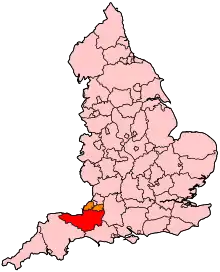 Location of Somerset within England | |
| County | Somerset |
| Major settlements | Taunton |
| 1918–2010 | |
| Number of members | One |
| Replaced by | Taunton Deane |
| 1295–1918 | |
| Number of members | Two (1295-1885), One (1885-1918) |
| Type of constituency | Borough constituency |
In the boundary changes that came into effect at the general election of 2010, the Boundary Commission for England replaced Taunton with a modified constituency called Taunton Deane, to reflect the district name. The new constituency's boundaries are coterminous with the local government district of the same name.
History
Famous MPs for the borough include Thomas Cromwell.
The 1754 by-election was so fiercely contested that rioting broke out in which two people died.
In the 2005 general election, the victorious Liberal Democrats candidate in Taunton required the smallest percentage swing from the Conservative MP for them to take the seat.
Boundaries
1918–1950: The Borough of Taunton, the Urban Districts of Wellington and Wiveliscombe, and the Rural Districts of Dulverton, Taunton, and Wellington.
1950–1974: As above less Wiveliscombe Urban District. This had been absorbed by Wellington Rural District in 1933. The constituency boundaries remained unchanged.
1974–1983: As 1950 but with redrawn boundaries.
1983–2010: The Borough of Taunton Deane, and the District of West Somerset wards of Dulverton and Brushford, Exmoor, Haddon, and Quarme.
Members of Parliament
MPs 1295–1640
- Constituency created (1295)
| Parliament | First member | Second member | ||
|---|---|---|---|---|
| 1362 | William Portman | ? | ||
| 1363, 1365, 1366, 1368, 1369, 1371 |
Unknown | |||
| 1372 | William Portman | ? | ||
| 1373, 1376, 1377 (Jan), 1377 (Oct), 1378 |
Unknown | |||
| 1379 | William Portman | ? | ||
| 1380 (Jan) | ? | |||
| 1380 (Nov), 1381, 1382 (May), 1382 (Oct), 1383 (Feb), 1383 (Oct), 1384 (Apr) |
Unknown | |||
| 1384 (Nov) | William Portman | ? | ||
| 1385 | ? | |||
| 1386 | William Marchaunt | |||
| 1388 (Feb) | ||||
| 1388 (Sep) | William Damarle | |||
| 1390 (Jan) | John Porter | |||
| 1390 (Nov) | Unknown | |||
| 1391 | William Portman | William Marchaunt | ||
| 1393 | John Porter | |||
| 1394 | ||||
| 1395 | Walter Puryham | |||
| 1397 (Jan) | Robert Coullyng | Robert Eysel | ||
| 1397 (Sept) | Richard Marchaunt | John Northmore | ||
| 1399 | Walter Puryham | Edmund Rokes | ||
| 1401 | Unknown | |||
| 1402 | William Portman | Ralph Sargor | ||
| 1404 (Jan), 1404 (Oct) | Unknown | |||
| 1406 | William Portman | Robert Bathe | ||
| 1407 | Richard Marchaunt | John Northmore | ||
| 1410 | Thomas Bacot | Thomas Edward | ||
| 1411, 1413 (Feb) | Unknown | |||
| 1413 (May) | John Rydon | Lewis John | ||
| 1414 (Apr) | John Marchaunt | Edmund Dyer | ||
| 1414 (Nov) | ||||
| 1415, 1416 (Mar), 1416 (Oct) | Unknown | |||
| 1417 | John Rydon | Walter Portman | ||
| 1419 | Walter Portman | Robert Croke | ||
| 1420 | Robert Croke | William Borde | ||
| 1421 (May) | Walter Portman | |||
| 1421 (Dec) | John Bowe | |||
| 1422 | ? | |||
| 1423 | Unknown | |||
| 1425 | Walter Portman | ? | ||
| 1426 | ? | |||
| 1427 | ? | |||
| 1429 | Unknown | |||
| 1431 | Walter Portman | ? | ||
| 1432, 1433 | Unknown | |||
| 1435 | Walter Portman | ? | ||
| 1437, 1439, 1442, 1445, 1447, 1449 (Feb), 1449 (Nov), 1450, 1453 |
Unknown | |||
| 1455 | Ralph Legh | ? | ||
| 1459, 1460, 1461, 1463 | Unknown | |||
| 1467 | Sir William Danvers | Robert Ashetill | ||
| 1470 | Sir William Danvers | Edward Aysshton | ||
| 1472 | Sir William Danvers | ? | ||
| 1478 | Edward Aysshton | Robert Lovelord | ||
| 1483–1523 | Unknown | |||
| 1529 | Thomas Cromwell | William Portman | ||
| 1536 | ?Richard Pollard | ?William Portman | ||
| 1547 | Sir Nicholas Hare | John Caryll | ||
| 1553 (Mar) | John Mason | ? | ||
| 1553 (Oct) | James Basset | Jacques Wingfield | ||
| 1554 (Apr) | William Barne | Oliver Vachell | ||
| 1554 (Nov) | Thomas Eden | John Norres | ||
| 1555 | Dr Valentine Dale | ? | ||
| 1558 | Richard Myrfield | |||
| 1559 | ? | |||
| 1563–7 | Miles Sandys | Anthony Leigh | ||
| 1571 | Robert Hill | Richard Blount | ||
| 1572–81 | Roger Hill | Richard Blount[1] Edmund Hodges | ||
| 1584–5 | Maurice Horner | William Goldwell | ||
| 1586–7 | Francis Bacon | John Goldwell | ||
| 1588–9 | Thomas Fisher | |||
| 1593 | William Aubrey, DCL | John Davidge | ||
| 1597–8 | Edward Barker | Edward Hext | ||
| 1601 | John Bond | Daniel Donne, DCL | ||
| 1604–11 | Edward Hext | |||
| Addled Parliament (1614) | James Clarke | John Donne | ||
| 1621–2 | Lewis Pope | Thomas Brereton | ||
| Happy Parliament (1624–5) | Roger Prowse | |||
| Useless Parliament (1625) | Hugh Portman | Thomas Brereton | ||
| 1625–6 | Sir Robert Gorges | George Browne | ||
| 1628 | Hugh Portman | |||
| 1629–40 | No Parliament summoned | |||
MPs 1640–1885
MPs since 1885
Elections
Elections in the 1830s
| Party | Candidate | Votes | % | ±% | |
|---|---|---|---|---|---|
| Whig | Henry Labouchere | 430 | 46.1 | ||
| Whig | Edward Thomas Bainbridge | 280 | 30.0 | ||
| Tory | William Peachey | 223 | 23.9 | ||
| Majority | 57 | 6.1 | |||
| Turnout | 533 | c. 66.6 | |||
| Registered electors | c. 800 | ||||
| Whig gain from Tory | Swing | ||||
| Whig gain from Tory | Swing | ||||
| Party | Candidate | Votes | % | ||
|---|---|---|---|---|---|
| Whig | Henry Labouchere | Unopposed | |||
| Whig | Edward Thomas Bainbridge | Unopposed | |||
| Registered electors | c. 800 | ||||
| Whig hold | |||||
| Whig hold | |||||
Labouchere was appointed as a Lord of the Admiralty, causing a by-election.
| Party | Candidate | Votes | % | ||
|---|---|---|---|---|---|
| Whig | Henry Labouchere | Unopposed | |||
| Registered electors | c. 800 | ||||
| Whig hold | |||||
| Party | Candidate | Votes | % | ||
|---|---|---|---|---|---|
| Whig | Henry Labouchere | Unopposed | |||
| Whig | Edward Thomas Bainbridge | Unopposed | |||
| Registered electors | 949 | ||||
| Whig hold | |||||
| Whig hold | |||||
| Party | Candidate | Votes | % | ||
|---|---|---|---|---|---|
| Whig | Henry Labouchere | Unopposed | |||
| Whig | Edward Thomas Bainbridge | Unopposed | |||
| Registered electors | 920 | ||||
| Whig hold | |||||
| Whig hold | |||||
Labouchere was appointed as Vice-President of the Board of Trade, and Master of the Mint, requiring a by-election.
| Party | Candidate | Votes | % | ||
|---|---|---|---|---|---|
| Whig | Henry Labouchere | 452 | 61.6 | ||
| Conservative | Benjamin Disraeli | 282 | 38.4 | ||
| Majority | 170 | 23.2 | |||
| Turnout | 734 | 79.8 | |||
| Registered electors | 920 | ||||
| Whig hold | |||||
| Party | Candidate | Votes | % | ||
|---|---|---|---|---|---|
| Whig | Henry Labouchere | 469 | 36.3 | ||
| Whig | Edward Thomas Bainbridge | 414 | 32.0 | ||
| Conservative | Robert Newton Lee | 409 | 31.7 | ||
| Majority | 5 | 0.3 | |||
| Turnout | 798 | 84.6 | |||
| Registered electors | 943 | ||||
| Whig hold | |||||
| Whig hold | |||||
Elections in the 1840s
| Party | Candidate | Votes | % | ±% | |
|---|---|---|---|---|---|
| Whig | Henry Labouchere | 430 | 29.9 | −6.4 | |
| Whig | Edward Thomas Bainbridge | 409 | 28.4 | −3.6 | |
| Conservative | William Wilberforce | 381 | 26.5 | +10.7 | |
| Conservative | James Hall | 218 | 15.2 | −0.7 | |
| Majority | 28 | 1.9 | +1.6 | ||
| Turnout | 759 | 88.7 | +4.1 | ||
| Registered electors | 856 | ||||
| Whig hold | Swing | −5.7 | |||
| Whig hold | Swing | −4.3 | |||
Bainbridge resigned by accepting the office of Steward of the Chiltern Hundreds, causing a by-election.
| Party | Candidate | Votes | % | ±% | |
|---|---|---|---|---|---|
| Whig | Edward Colebrooke | 394 | 53.9 | −4.4 | |
| Conservative | James Hall | 337 | 46.1 | +4.4 | |
| Majority | 57 | 7.8 | +5.9 | ||
| Turnout | 731 | 72.4 | −16.3 | ||
| Registered electors | 1,010 | ||||
| Whig hold | Swing | −4.4 | |||
Labouchere was appointed Chief Secretary to the Lord Lieutenant of Ireland, requiring a by-election.
| Party | Candidate | Votes | % | ±% | |
|---|---|---|---|---|---|
| Whig | Henry Labouchere | Unopposed | |||
| Whig hold | |||||
| Party | Candidate | Votes | % | ±% | |
|---|---|---|---|---|---|
| Whig | Henry Labouchere | 543 | 41.5 | +11.6 | |
| Whig | Edward Colebrooke | 388 | 29.7 | +1.3 | |
| Conservative | Arthur Mills | 376 | 28.8 | −12.9 | |
| Majority | 12 | 0.9 | −1.0 | ||
| Turnout | 654 (est) | 71.7 (est) | −17.0 | ||
| Registered electors | 911 | ||||
| Whig hold | Swing | +9.0 | |||
| Whig hold | Swing | +3.9 | |||
Elections in the 1850s
| Party | Candidate | Votes | % | ±% | |
|---|---|---|---|---|---|
| Whig | Henry Labouchere | 430 | 37.4 | −4.1 | |
| Conservative | Arthur Mills | 361 | 31.4 | +2.6 | |
| Whig | Edward Colebrooke | 358 | 31.2 | +1.5 | |
| Turnout | 575 (est) | 72.7 (est) | +1.0 | ||
| Registered electors | 790 | ||||
| Majority | 69 | 6.0 | +5.1 | ||
| Whig hold | Swing | −2.7 | |||
| Majority | 3 | 0.2 | N/A | ||
| Conservative gain from Whig | Swing | +2.6 | |||
Mills' election was declared void on petition.
| Party | Candidate | Votes | % | ±% | |
|---|---|---|---|---|---|
| Whig | John William Ramsden | 372 | 50.3 | −18.3 | |
| Conservative | Henry Badcock[21] | 367 | 49.7 | +18.3 | |
| Majority | 5 | 0.6 | −5.4 | ||
| Turnout | 739 | 83.4 | +10.7 | ||
| Registered electors | 886 | ||||
| Whig gain from Conservative | Swing | −18.3 | |||
Labouchere was appointed Secretary of State for the Colonies, requiring a by-election.
| Party | Candidate | Votes | % | ±% | |
|---|---|---|---|---|---|
| Whig | Henry Labouchere | Unopposed | |||
| Whig hold | |||||
| Party | Candidate | Votes | % | ±% | |
|---|---|---|---|---|---|
| Whig | Henry Labouchere | 442 | 36.6 | −0.8 | |
| Conservative | Arthur Mills | 401 | 33.2 | +1.8 | |
| Whig | William Campbell[22] | 366 | 30.3 | −0.9 | |
| Turnout | 605 (est) | 68.2 (est) | −4.5 | ||
| Registered electors | 887 | ||||
| Majority | 41 | 3.4 | −2.6 | ||
| Whig hold | Swing | −0.9 | |||
| Majority | 35 | 2.9 | +2.7 | ||
| Conservative hold | Swing | +1.8 | |||
| Party | Candidate | Votes | % | ±% | |
|---|---|---|---|---|---|
| Conservative | Arthur Mills | 415 | 30.0 | +13.4 | |
| Liberal | Henry Labouchere | 388 | 28.1 | −8.5 | |
| Conservative | George Cavendish-Bentinck | 325 | 23.5 | +6.9 | |
| Liberal | William Beadon[23] | 255 | 18.4 | −11.9 | |
| Turnout | 692 (est) | 83.1 (est) | +14.9 | ||
| Registered electors | 832 | ||||
| Majority | 27 | 2.0 | −0.9 | ||
| Conservative hold | Swing | +11.8 | |||
| Majority | 63 | 4.6 | +1.2 | ||
| Liberal hold | Swing | −9.3 | |||
Labouchere was elevated to the peerage, becoming Lord 1st Baron Taunton and causing a by-election.
| Party | Candidate | Votes | % | ±% | |
|---|---|---|---|---|---|
| Conservative | George Cavendish-Bentinck | 382 | 53.1 | −0.4 | |
| Liberal | Alexander Charles Barclay | 337 | 46.9 | +0.4 | |
| Majority | 45 | 6.2 | N/A | ||
| Turnout | 719 | 86.4 | +3.3 | ||
| Registered electors | 832 | ||||
| Conservative gain from Liberal | Swing | −0.4 | |||
Elections in the 1860s
| Party | Candidate | Votes | % | ±% | |
|---|---|---|---|---|---|
| Liberal | Alexander Charles Barclay | 478 | 31.9 | +3.8 | |
| Liberal | William Hay | 470 | 31.3 | +12.9 | |
| Conservative | Edward William Cox | 292 | 19.5 | −10.5 | |
| Conservative | Alfred Austin[24] | 260 | 17.3 | −6.2 | |
| Majority | 178 | 11.8 | +7.2 | ||
| Turnout | 750 (est) | 89.4 (est) | +6.3 | ||
| Registered electors | 839 | ||||
| Liberal hold | Swing | +6.1 | |||
| Liberal gain from Conservative | Swing | +10.6 | |||
| Party | Candidate | Votes | % | ±% | |
|---|---|---|---|---|---|
| Liberal | Alexander Charles Barclay | 1,105 | 37.0 | +5.1 | |
| Conservative | Edward William Cox | 988 | 33.1 | −3.7 | |
| Liberal | Henry James | 890 | 29.8 | −1.5 | |
| Turnout | 1,492 (est) | 75.4 (est) | −14.0 | ||
| Registered electors | 1,977 | ||||
| Majority | 117 | 3.9 | −8.1 | ||
| Liberal hold | Swing | +3.5 | |||
| Majority | 98 | 3.3 | N/A | ||
| Conservative gain from Liberal | Swing | −3.7 | |||
On petition, Cox's election was scrutinised, and some of his votes were found to have been acquired by bribery, and were then struck off. This caused him to be unseated on 8 March 1869 and James was declared elected.[25] While a petition was then lodged against James, the court ruled a petitioner who had been seated on petition could not then be petitioned against.[20]
Elections in the 1870s
James was appointed Solicitor-General for England and Wales, causing a by-election.
| Party | Candidate | Votes | % | ±% | |
|---|---|---|---|---|---|
| Liberal | Henry James | 899 | 52.5 | −14.3 | |
| Conservative | Sir Alfred Frederic Adolphus Slade, 3rd Baronet | 812 | 47.5 | +14.4 | |
| Majority | 87 | 5.0 | +1.1 | ||
| Turnout | 1,711 | 89.4 | +14.0 | ||
| Registered electors | 1,913 | ||||
| Liberal hold | Swing | −14.4 | |||
| Party | Candidate | Votes | % | ±% | |
|---|---|---|---|---|---|
| Liberal | Henry James | Unopposed | |||
| Liberal | Alexander Charles Barclay | Unopposed | |||
| Registered electors | 1,999 | ||||
| Liberal hold | |||||
| Liberal gain from Conservative | |||||
Elections in the 1880s
| Party | Candidate | Votes | % | ±% | |
|---|---|---|---|---|---|
| Conservative | William Palliser | 1,084 | 26.9 | New | |
| Liberal | Henry James | 1,000 | 24.9 | N/A | |
| Conservative | William Cargill | 971 | 24.1 | New | |
| Liberal | Roger Eykyn[26] | 968 | 24.1 | N/A | |
| Turnout | 2,012 (est) | 90.4 (est) | N/A | ||
| Registered electors | 2,225 | ||||
| Majority | 84 | 2.8 | N/A | ||
| Conservative gain from Liberal | Swing | ||||
| Majority | 29 | 0.8 | N/A | ||
| Liberal hold | Swing | ||||
James was appointed Attorney General for England and Wales, requiring a by-election.
| Party | Candidate | Votes | % | ±% | |
|---|---|---|---|---|---|
| Liberal | Henry James | Unopposed | |||
| Liberal hold | |||||
Palliser's death caused a by-election.
| Party | Candidate | Votes | % | ±% | |
|---|---|---|---|---|---|
| Conservative | Samuel Allsopp | 1,144 | 55.5 | +4.5 | |
| Liberal | Frederick Lambart | 917 | 44.5 | −4.5 | |
| Majority | 227 | 11.0 | +8.9 | ||
| Turnout | 2,061 | 87.3 | −3.1 (est) | ||
| Registered electors | 2,362 | ||||
| Conservative hold | Swing | +4.5 | |||
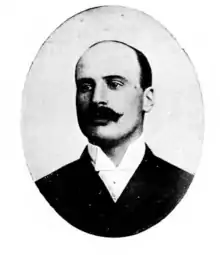
| Party | Candidate | Votes | % | ±% | |
|---|---|---|---|---|---|
| Conservative | Samuel Allsopp | 1,361 | 58.2 | +7.2 | |
| Liberal | Charles Jessel | 978 | 41.8 | −7.2 | |
| Majority | 383 | 16.4 | +14.3 | ||
| Turnout | 2,339 | 92.1 | +1.7 (est) | ||
| Registered electors | 2,541 | ||||
| Conservative hold | Swing | +7.2 | |||
| Party | Candidate | Votes | % | ±% | |
|---|---|---|---|---|---|
| Conservative | Samuel Allsopp | Unopposed | |||
| Conservative hold | |||||
Allsopp succeeded to the peerage, becoming Lord Hindlip, causing a by-election.
| Party | Candidate | Votes | % | ±% | |
|---|---|---|---|---|---|
| Conservative | Alfred Allsopp | 1,426 | 61.6 | N/A | |
| Liberal | James Harris Sanders | 890 | 38.4 | New | |
| Majority | 536 | 23.2 | N/A | ||
| Turnout | 2,316 | 89.4 | N/A | ||
| Registered electors | 2,825 | ||||
| Conservative hold | Swing | N/A | |||
Elections in the 1890s
| Party | Candidate | Votes | % | ±% | |
|---|---|---|---|---|---|
| Conservative | Alfred Allsopp | 1,402 | 60.4 | N/A | |
| Liberal | Henry Hewitt Bridgman | 921 | 39.6 | N/A | |
| Majority | 481 | 20.8 | N/A | ||
| Turnout | 2,323 | 82.2 | N/A | ||
| Registered electors | 2,825 | ||||
| Conservative hold | Swing | ||||
| Party | Candidate | Votes | % | ±% | |
|---|---|---|---|---|---|
| Conservative | Alfred Welby | Unopposed | |||
| Conservative hold | |||||
Elections in the 1900s
| Party | Candidate | Votes | % | ±% | |
|---|---|---|---|---|---|
| Conservative | Alfred Welby | 1,387 | 57.5 | N/A | |
| Liberal | Walker King | 1,024 | 42.5 | New | |
| Majority | 363 | 15.0 | N/A | ||
| Turnout | 2,411 | 73.7 | N/A | ||
| Registered electors | 3,272 | ||||
| Conservative hold | Swing | N/A | |||
| Party | Candidate | Votes | % | ±% | |
|---|---|---|---|---|---|
| Conservative | Edward Boyle | 1,842 | 55.1 | -2.4 | |
| Liberal | Arthur Ponsonby | 1,503 | 44.9 | +2.4 | |
| Majority | 339 | 10.2 | -4.8 | ||
| Turnout | 3,345 | 93.2 | +18.5 | ||
| Registered electors | 3,590 | ||||
| Conservative hold | Swing | -2.4 | |||
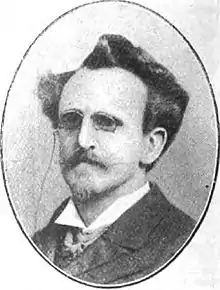
| Party | Candidate | Votes | % | ±% | |
|---|---|---|---|---|---|
| Conservative | William Peel | 1,976 | 64.6 | +9.5 | |
| Labour | Frank Smith | 1,085 | 35.4 | New | |
| Majority | 891 | 29.2 | +19.0 | ||
| Turnout | 3,061 | 80.4 | −12.8 | ||
| Registered electors | 3,808 | ||||
| Conservative hold | Swing | N/A | |||
Elections in the 1910s
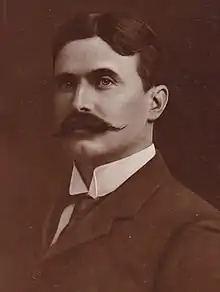
| Party | Candidate | Votes | % | ±% | |
|---|---|---|---|---|---|
| Conservative | William Peel | 1,906 | 55.3 | +0.2 | |
| Liberal | William Arthur Addinsell | 1,538 | 44.7 | −0.2 | |
| Majority | 368 | 10.6 | +0.4 | ||
| Turnout | 3,444 | 90.3 | −2.9 | ||
| Registered electors | 3,814 | ||||
| Conservative hold | Swing | +0.2 | |||
| Party | Candidate | Votes | % | ±% | |
|---|---|---|---|---|---|
| Conservative | William Peel | 1,806 | 53.4 | −1.9 | |
| Liberal | John Edward Schunck | 1,573 | 46.6 | +1.9 | |
| Majority | 233 | 6.8 | −3.8 | ||
| Turnout | 3,379 | 88.6 | −1.7 | ||
| Registered electors | 3,814 | ||||
| Conservative hold | Swing | −1.9 | |||
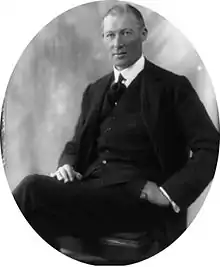
| Party | Candidate | Votes | % | ±% | |
|---|---|---|---|---|---|
| Unionist | Gilbert Wills | 1,882 | 54.1 | +0.7 | |
| Liberal | John Edward Schunk | 1,597 | 45.9 | -0.7 | |
| Majority | 285 | 8.2 | +1.4 | ||
| Turnout | 3,479 | 88.7 | +0.1 | ||
| Registered electors | 3,921 | ||||
| Unionist hold | Swing | +0.7 | |||
General Election 1914/15:
Another General Election was required to take place before the end of 1915. The political parties had been making preparations for an election to take place and by the July 1914, the following candidates had been selected;
- Unionist: Gilbert Wills
- Liberal: James Bromley Eames
| Party | Candidate | Votes | % | ±% | |
|---|---|---|---|---|---|
| C | Unionist | Dennis Boles | 12,619 | 72.4 | +19.0 |
| Labour | George Woods | 4,816 | 27.6 | New | |
| Majority | 7,803 | 44.8 | +38.0 | ||
| Turnout | 17,435 | 60.4 | −28.2 | ||
| Unionist hold | Swing | N/A | |||
| C indicates candidate endorsed by the coalition government. | |||||
Elections in the 1920s
| Party | Candidate | Votes | % | ±% | |
|---|---|---|---|---|---|
| C | Unionist | Arthur Griffith-Boscawen | 12,994 | 61.1 | -11.3 |
| Labour | James Lunnon | 8,290 | 38.9 | +11.3 | |
| Majority | 4,704 | 22.2 | -22.6 | ||
| Turnout | 21,284 | 73.5 | +13.1 | ||
| Unionist hold | Swing | -11.3 | |||
| C indicates candidate endorsed by the coalition government. | |||||
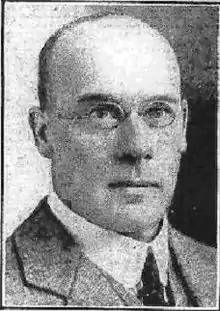
| Party | Candidate | Votes | % | ±% | |
|---|---|---|---|---|---|
| Liberal | John Hope Simpson | 13,195 | 56.4 | New | |
| Unionist | Arthur Griffith-Boscawen | 10,182 | 43.6 | -28.8 | |
| Majority | 3,007 | 12.8 | N/A | ||
| Turnout | 23,377 | 79.1 | +18.7 | ||
| Liberal gain from Unionist | Swing | N/A | |||
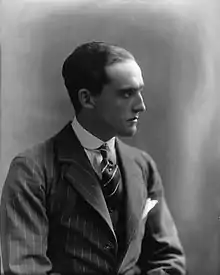
| Party | Candidate | Votes | % | ±% | |
|---|---|---|---|---|---|
| Liberal | John Hope Simpson | 13,053 | 52.5 | -3.9 | |
| Unionist | Hamilton Gault | 11,798 | 47.5 | +3.9 | |
| Majority | 1,255 | 5.0 | -7.8 | ||
| Turnout | 24,851 | 82.6 | +3.5 | ||
| Liberal hold | Swing | -3.9 | |||
| Party | Candidate | Votes | % | ±% | |
|---|---|---|---|---|---|
| Unionist | Hamilton Gault | 13,930 | 52.1 | +4.6 | |
| Liberal | John Hope Simpson | 10,381 | 38.8 | -13.7 | |
| Labour | George Woods | 2,441 | 9.1 | New | |
| Majority | 3,549 | 13.3 | N/A | ||
| Turnout | 26,752 | 85.6 | +3.0 | ||
| Unionist gain from Liberal | Swing | +9.1 | |||
| Party | Candidate | Votes | % | ±% | |
|---|---|---|---|---|---|
| Unionist | Hamilton Gault | 15,083 | 45.9 | -6.2 | |
| Liberal | Walter Rea | 11,121 | 33.9 | -4.9 | |
| Labour | Joseph Sparks | 6,615 | 20.2 | +11.1 | |
| Majority | 3,962 | 12.0 | -1.3 | ||
| Turnout | 32,819 | 82.2 | -3.4 | ||
| Unionist hold | Swing | -0.6 | |||
Elections in the 1930s
| Party | Candidate | Votes | % | ±% | |
|---|---|---|---|---|---|
| Conservative | Hamilton Gault | 22,564 | 72.95 | ||
| Labour | Frank George Bushnell | 8,367 | 27.05 | ||
| Majority | 14,197 | 45.90 | |||
| Turnout | 30,931 | 75.43 | |||
| Conservative hold | Swing | ||||
| Party | Candidate | Votes | % | ±% | |
|---|---|---|---|---|---|
| Conservative | Edward Wickham | 19,443 | 63.41 | ||
| Labour | James Lunnon | 11,219 | 36.59 | ||
| Majority | 8,224 | 26.82 | |||
| Turnout | 30,720 | 72.39 | |||
| Conservative hold | Swing | ||||
Elections in the 1940s
General Election 1939/40
Another General Election was required to take place before the end of 1940. The political parties had been making preparations for an election to take place and by the Autumn of 1939, the following candidates had been selected;
- Conservative: Edward Wickham
- Labour: Charles W. Gott[30]
| Party | Candidate | Votes | % | ±% | |
|---|---|---|---|---|---|
| Labour | Victor Collins | 19,976 | 52.80 | ||
| Conservative | Edward Wickham | 17,858 | 47.20 | ||
| Majority | 2,118 | 5.60 | N/A | ||
| Turnout | 37,834 | 72.98 | |||
| Labour gain from Conservative | Swing | ||||
Elections in the 1950s
| Party | Candidate | Votes | % | ±% | |
|---|---|---|---|---|---|
| Conservative | Henry Hopkinson | 20,724 | 46.43 | ||
| Labour | Victor Collins | 19,352 | 43.35 | ||
| Liberal | John Robert Phillipson | 4,561 | 10.22 | New | |
| Majority | 1,372 | 3.08 | N/A | ||
| Turnout | 44,637 | 88.81 | |||
| Conservative gain from Labour | Swing | ||||
| Party | Candidate | Votes | % | ±% | |
|---|---|---|---|---|---|
| Conservative | Henry Hopkinson | 24,826 | 54.36 | ||
| Labour | Victor Collins | 20,845 | 45.64 | ||
| Majority | 3,981 | 8.72 | |||
| Turnout | 45,671 | 89.00 | |||
| Conservative hold | Swing | ||||
| Party | Candidate | Votes | % | ±% | |
|---|---|---|---|---|---|
| Conservative | Henry Hopkinson | 22,962 | 52.11 | ||
| Labour | Reginald Wells-Pestell | 17,420 | 39.53 | ||
| Liberal | Guy Barrington | 3,684 | 8.36 | New | |
| Majority | 5,542 | 12.58 | |||
| Turnout | 44,066 | 85.46 | |||
| Conservative hold | Swing | ||||
| Party | Candidate | Votes | % | ±% | |
|---|---|---|---|---|---|
| Conservative | Edward du Cann | 19,820 | 50.84 | -1.27 | |
| Labour | Reginald Wells-Pestell | 19,163 | 49.16 | +9.63 | |
| Majority | 657 | 1.68 | -10.90 | ||
| Turnout | 38,983 | ||||
| Conservative hold | Swing | ||||
| Party | Candidate | Votes | % | ±% | |
|---|---|---|---|---|---|
| Conservative | Edward du Cann | 22,680 | 49.42 | ||
| Labour | Leonard V Pike | 16,182 | 35.26 | ||
| Liberal | Charles Meddon Karslake Bruton | 7,031 | 15.32 | ||
| Majority | 6,498 | 14.16 | |||
| Turnout | 45,893 | 87.12 | |||
| Conservative hold | Swing | ||||
Elections in the 1960s
| Party | Candidate | Votes | % | ±% | |
|---|---|---|---|---|---|
| Conservative | Edward du Cann | 21,367 | 46.52 | ||
| Labour | Leonard V Pike | 16,619 | 36.18 | ||
| Liberal | Margaret Irene Gaenor Heathcoat Amory | 7,944 | 17.30 | ||
| Majority | 4,748 | 10.34 | |||
| Turnout | 45,930 | 84.74 | |||
| Conservative hold | Swing | ||||
| Party | Candidate | Votes | % | ±% | |
|---|---|---|---|---|---|
| Conservative | Edward du Cann | 22,369 | 47.55 | ||
| Labour | Robin J Bradbury | 19,216 | 40.85 | ||
| Liberal | Margaret Irene Gaenor Heathcoat Amory | 5,460 | 11.61 | ||
| Majority | 3,153 | 6.70 | |||
| Turnout | 47,045 | 85.27 | |||
| Conservative hold | Swing | ||||
Elections in the 1970s
| Party | Candidate | Votes | % | ±% | |
|---|---|---|---|---|---|
| Conservative | Edward du Cann | 26,158 | 53.55 | ||
| Labour | Steven Mama | 17,823 | 36.48 | ||
| Liberal | Gerard O'Donnell | 4,871 | 9.97 | ||
| Majority | 8,335 | 17.06 | |||
| Turnout | 48,852 | 78.96 | |||
| Conservative hold | Swing | ||||
| Party | Candidate | Votes | % | ±% | |
|---|---|---|---|---|---|
| Conservative | Edward du Cann | 23,841 | 45.11 | ||
| Labour | D.W. Keene | 15,401 | 29.14 | ||
| Liberal | M.E. Mann | 13,607 | 25.75 | ||
| Majority | 8,440 | 15.97 | |||
| Turnout | 52,849 | 83.88 | |||
| Conservative hold | Swing | ||||
| Party | Candidate | Votes | % | ±% | |
|---|---|---|---|---|---|
| Conservative | Edward du Cann | 22,542 | 44.61 | ||
| Labour | Barry Sheerman | 15,721 | 31.11 | ||
| Liberal | M.E. Mann | 11,984 | 23.72 | ||
| United Democratic Party | L.D. Bradford | 283 | 0.56 | New | |
| Majority | 6,821 | 13.50 | |||
| Turnout | 50,530 | 79.38 | |||
| Conservative hold | Swing | ||||
| Party | Candidate | Votes | % | ±% | |
|---|---|---|---|---|---|
| Conservative | Edward du Cann | 28,483 | 53.17 | ||
| Labour | S. Horne | 15,759 | 29.42 | ||
| Liberal | M. Lee | 7,928 | 14.80 | ||
| Ecology | G. Garbett | 1,403 | 2.62 | New | |
| Majority | 12,724 | 23.75 | |||
| Turnout | 53,573 | 80.74 | |||
| Conservative hold | Swing | ||||
Elections in the 1980s
| Party | Candidate | Votes | % | ±% | |
|---|---|---|---|---|---|
| Conservative | Edward du Cann | 28,112 | 52.89 | ||
| SDP | Michael Cocks | 15,545 | 29.24 | New | |
| Labour | J. Gray | 9,498 | 17.87 | ||
| Majority | 12,567 | 23.65 | |||
| Turnout | 53,155 | 75.55 | |||
| Conservative hold | Swing | ||||
| Party | Candidate | Votes | % | ±% | |
|---|---|---|---|---|---|
| Conservative | David Nicholson | 30,248 | 51.38 | ||
| SDP | Michael Cocks | 19,868 | 33.75 | ||
| Labour | Gary Reynolds | 8,754 | 14.87 | ||
| Majority | 10,380 | 17.63 | |||
| Turnout | 58,870 | 79.40 | |||
| Conservative hold | Swing | ||||
Elections in the 1990s
| Party | Candidate | Votes | % | ±% | |
|---|---|---|---|---|---|
| Conservative | David Nicholson | 29,576 | 46.0 | −5.4 | |
| Liberal Democrats | Jackie Ballard | 26,240 | 40.8 | +7.1 | |
| Labour | L. Jean Hole | 8,151 | 12.7 | −2.2 | |
| Natural Law | Philip A. Leavey | 279 | 0.4 | New | |
| Majority | 3,336 | 5.2 | −12.4 | ||
| Turnout | 64,246 | 82.3 | +2.9 | ||
| Conservative hold | Swing | −6.2 | |||
| Party | Candidate | Votes | % | ±% | |
|---|---|---|---|---|---|
| Liberal Democrats | Jackie Ballard | 26,064 | 42.7 | +1.9 | |
| Conservative | David Nicholson | 23,621 | 38.7 | -7.3 | |
| Labour | Elizabeth Lisgo | 8,248 | 13.5 | +0.8 | |
| Referendum | Brian Ahern | 2,760 | 4.5 | New | |
| BNP | Leslie Andrews | 318 | 0.5 | New | |
| Majority | 2,443 | 4.0 | N/A | ||
| Turnout | 61,011 | 76.5 | −5.8 | ||
| Liberal Democrats gain from Conservative | Swing | ||||
Elections in the 2000s
| Party | Candidate | Votes | % | ±% | |
|---|---|---|---|---|---|
| Conservative | Adrian Flook | 23,033 | 41.7 | +3.0 | |
| Liberal Democrats | Jackie Ballard | 22,798 | 41.3 | −1.4 | |
| Labour | Andrew Govier | 8,254 | 14.9 | +1.4 | |
| UKIP | Michael Canton | 1,140 | 2.1 | New | |
| Majority | 235 | 0.4 | N/A | ||
| Turnout | 55,225 | 67.6 | −8.9 | ||
| Conservative gain from Liberal Democrats | Swing | ||||

| Party | Candidate | Votes | % | ±% | |
|---|---|---|---|---|---|
| Liberal Democrats | Jeremy Browne | 25,764 | 43.3 | +2.0 | |
| Conservative | Adrian Flook | 25,191 | 42.3 | +0.6 | |
| Labour | Andrew Govier | 7,132 | 12.0 | −2.9 | |
| UKIP | Helen Miles | 1,441 | 2.4 | +0.3 | |
| Majority | 573 | 1.0 | N/A | ||
| Turnout | 59,528 | 69.7 | +2.1 | ||
| Liberal Democrats gain from Conservative | Swing | −0.7 | |||
Notes and references
- Blount died during the 1572 Parliament, and Hodges was elected in his place in 1575.
- "Taunton". The History of Parliament. The History of Parliament Trust. Retrieved 24 September 2012.
- Cassidy, Irene. "Taunton 1660-1690". The History of Parliament. The History of Parliament Trust. Retrieved 24 September 2012.
- Cobbett records Admiral Robert Blake as being elected for Taunton and Palmer for Bridgwater; but Brunton & Pennington agree with the Dictionary of National Biography that Blake was MP for Bridgwater and Palmer for Taunton.
- At the general election of 1715, Warre and Portman were initially declared re-elected, but on petition (in a dispute over the franchise) they were adjudged not to have been duly elected and their opponents, Pynsent and Smith, were seated in their place
- Styled Lord Cockermouth from October 1749
- Created Earl of Tyrconnell (in the Peerage of Ireland), May 1761
- Succeeded as The Lord Farnham , August 1759; created Viscount Farnham, September 1760 and Earl of Farnham, May 1763 (all these titles being in the Peerage of Ireland).
- On petition, Stratford and Webb were adjudged not to have been duly elected, and their opponents, Halliday and Popham, were seated in their place
- Stooks Smith, Henry (1845). The Parliaments of England, from 1st George I., to the Present Time. Vol II: Oxfordshire to Wales Inclusive. London: Simpkin, Marshall, & Co. pp. 34–337. Retrieved 18 December 2018 – via Google Books.
- Matthew, H. C. G.; Barker, G. F. R. (4 October 2008) [2004]. "Labouchere, Henry, Baron Taunton (1798–1869)". Oxford Dictionary of National Biography (online ed.). Oxford University Press. doi:10.1093/ref:odnb/15838. Retrieved 14 July 2018. (Subscription or UK public library membership required.)
- Barker, George Fisher Russell (1892). . In Lee, Sidney (ed.). Dictionary of National Biography. 31. London: Smith, Elder & Co.
- Jenkins, Terry (2009). Fisher, D. R. (ed.). "Taunton". The History of Parliament. Retrieved 14 July 2018.
- "Worcester Journal". 3 August 1837. p. 6. Retrieved 14 July 2018 – via British Newspaper Archive.
- "The Scotsman". 12 February 1842. p. 2. Retrieved 14 July 2018 – via British Newspaper Archive.
- "Taunton Election - Final Close of the Poll". Leeds Intelligencer. 19 February 1842. p. 4. Retrieved 14 July 2018 – via British Newspaper Archive.
- On petition, Mills' election was declared void and a by-election was held
- On petition, the election of Cox was declared void and after scrutiny of the votes his opponent, James, was declared to have been duly elected
- Jenkins, Terry. "Taunton". The History of Parliament. Retrieved 26 April 2020.
- Craig, F. W. S., ed. (1977). British Parliamentary Election Results 1832-1885 (e-book) (1st ed.). London: Macmillan Press. ISBN 978-1-349-02349-3.
- "Taunton Election: Close of the Poll". Elgin Courier. 6 May 1853. p. 2. Retrieved 15 July 2018 – via British Newspaper Archive.
- "Taunton". Cheltenham Mercury. 21 March 1857. pp. 2–3. Retrieved 15 July 2018 – via British Newspaper Archive.
- "Taunton Election". Sherborne Mercury. 3 May 1859. p. 6. Retrieved 15 July 2018 – via British Newspaper Archive.
- "Election Intelligence". Bristol Times and Mirror. p. 3. Retrieved 19 March 2018 – via British Newspaper Archive.
- "Untitled". The Scotsman. 6 March 1869. p. 2. Retrieved 19 March 2018 – via British Newspaper Archive.
- "Election Intelligence". The Globe. 6 February 1882. p. 5. Retrieved 12 December 2017 – via British Newspaper Archive.
- Craig, F. W. S., ed. (1974). British Parliamentary Election Results: 1885-1918. London: Macmillan Press. p. 198. ISBN 9781349022984.
- British parliamentary election results, 1885-1918 (Craig)
- "Election of Lieut-Colonel E. T. R. Wickham". Taunton Courier. 20 November 1935. Retrieved 14 January 2015 – via British Newspaper Archive.
- Report of the Annual Conference of the Labour Party, 1939
- "Election Data 1983". Electoral Calculus. Archived from the original on 15 October 2011. Retrieved 18 October 2015.
- "Election Data 1987". Electoral Calculus. Archived from the original on 15 October 2011. Retrieved 18 October 2015.
- "Election Data 1992". Electoral Calculus. Archived from the original on 15 October 2011. Retrieved 18 October 2015.
- "Politics Resources". Election 1992. Politics Resources. 9 April 1992. Retrieved 6 December 2010.
- "Election Data 1997". Electoral Calculus. Archived from the original on 15 October 2011. Retrieved 18 October 2015.
- "Election Data 2001". Electoral Calculus. Archived from the original on 15 October 2011. Retrieved 18 October 2015.
- "Election Data 2005". Electoral Calculus. Archived from the original on 15 October 2011. Retrieved 18 October 2015.
Sources
- Robert Beatson, A Chronological Register of Both Houses of Parliament (London: Longman, Hurst, Res & Orme, 1807)
- D. Brunton & D. H. Pennington, Members of the Long Parliament (London: George Allen & Unwin, 1954)
- Cobbett's Parliamentary history of England, from the Norman Conquest in 1066 to the year 1803 (London: Thomas Hansard, 1808)
- Craig, F. W. S. (1983). British parliamentary election results 1918-1949 (3 ed.). Chichester: Parliamentary Research Services. ISBN 0-900178-06-X.
- F W S Craig, British Parliamentary Election Results 1832-1885 (2nd edition, Aldershot: Parliamentary Research Services, 1989)
- Maija Jansson (ed.), Proceedings in Parliament, 1614 (House of Commons) (Philadelphia: American Philosophical Society, 1988)
- J E Neale, The Elizabethan House of Commons (London: Jonathan Cape, 1949)
- Willis, Browne (1750). Notitia Parliamentaria, Part II: A Series or Lists of the Representatives in the several Parliaments held from the Reformation 1541, to the Restoration 1660 ... London. p. 1.
- Frederic A Youngs, jr, Guide to the Local Administrative Units of England, Vol I (London: Royal Historical Society, 1979)
- The BBC/ITN Guide to the New Parliamentary Constituencies (Chichester: Parliamentary Research Services, 1983)
- Concise Dictionary of National Biography
- List of speakers: Parliaments of 1656 and 1658-9, Diary of Thomas Burton esq, volume 4: March - April 1659 (1828) at British History Online